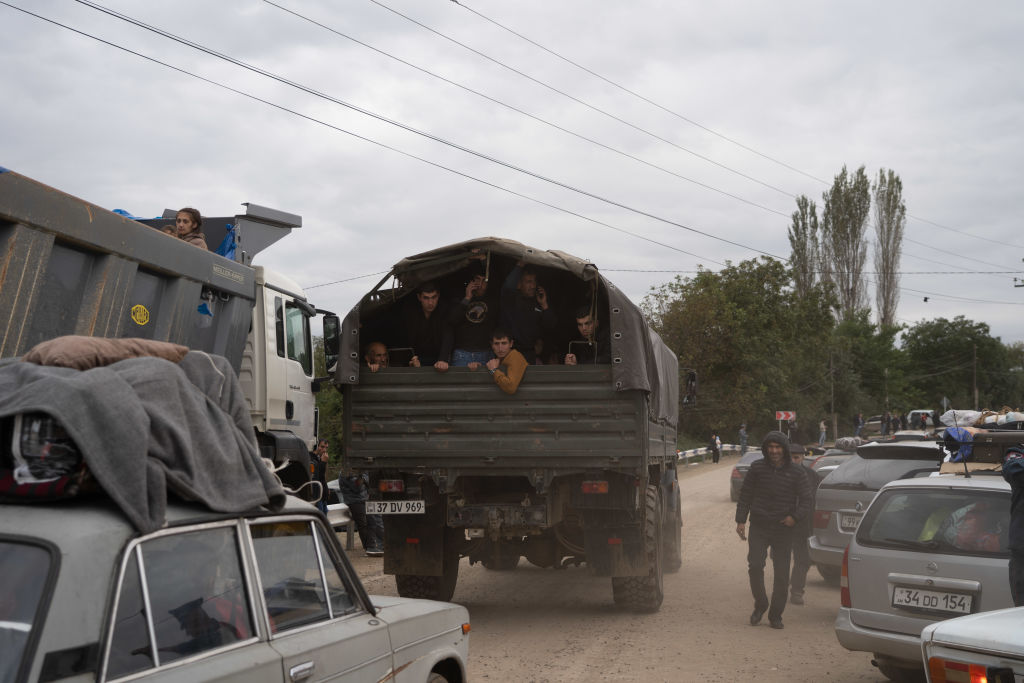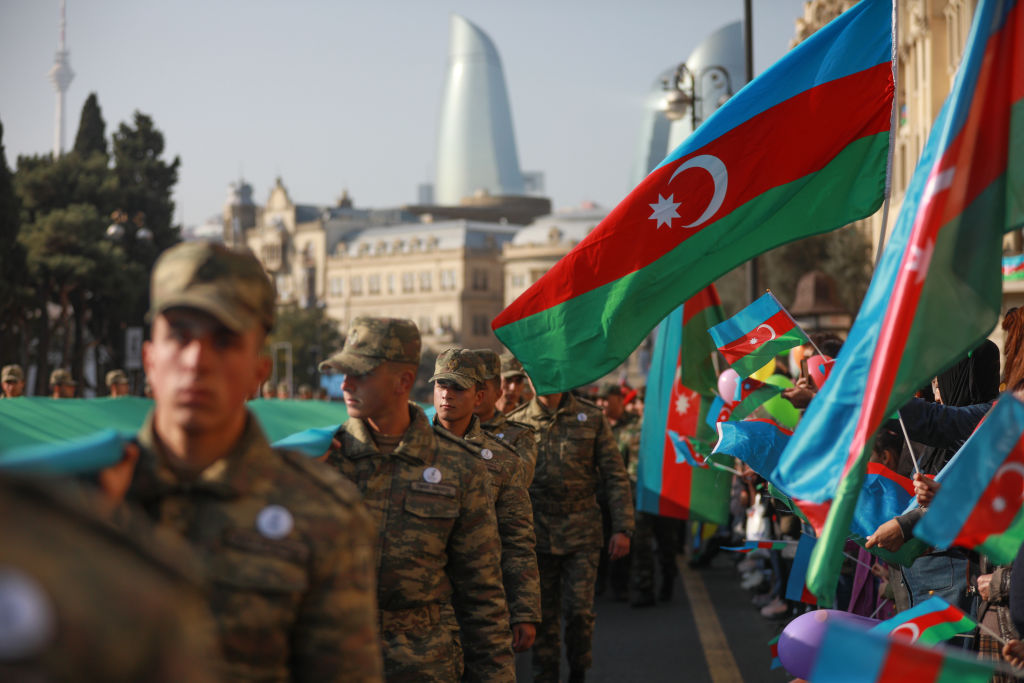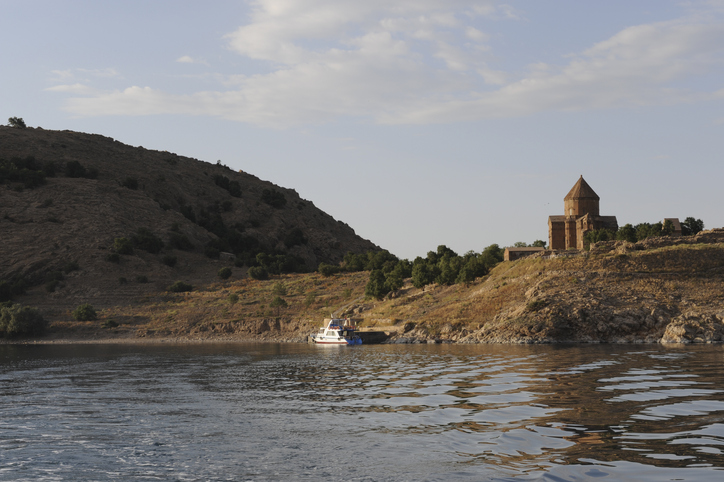An Armenian “sniper” attack broke the ceasefire between Armenia and Azerbaijan, a senior official from Baku has claimed.
“The Armenian side violated the ceasefire,” said Elchin Amirbayov, representative of the President on special assignments. The alleged Armenian sniper attack “heavily wounded” one of Azerbaijan’s border guards.
Speaking to Brussels Signal, Mr Amirbayov criticised the activity of European officials in the region, arguing that they could have provoked the sniper attack.
According to Amirbayov, Armenian troops ultimately bore responsibility for the recent skirmish, during which a reported four Armenian soldiers were killed.
“And, basically, that provoked this skirmish, which we very much regret because it’s also followed by the loss of life,” he added.
When asked whether Azerbaijan was now mobilising its military in response to the ceasefire agreement being breached, the senior official said he could not comment as the operation of the armed forces was outside of his purview.
He went on to say he did not think a military deployment was likely to occur because such a move would “not be in the interest” of peace, something he said Azerbaijan was in favour of.
“It’s very unfortunate that the Armenian side decided to violate this [ceasefire] regime, which has been there for some months,” he said.
“So hopefully, this will not lead to any degradation of the situation or further deterioration, but we will be able to proceed with necessary contacts with the Armenian side to advance further the peace agenda.”
Armenian Prime Minister Nikol Pashinyan stated on Thursday that he hopes to negotiate a peace treaty with Azerbaijan in the coming months. https://t.co/FtWJCIyenJ
— Brussels Signal (@brusselssignal) October 26, 2023
Speaking positively of EU-Azerbaijani relations as a whole, he expressed concern that the presence of an EU monitoring mission in Armenia had emboldened the country’s forces about attacking the border.
While the mission is described by the European Union as an attempt to boost “stability in the border areas” between Armenia and Azerbaijan and “build confidence” in normalisation efforts between the two countries, the Azerbaijani official argued that the programme has had the opposite effect.
Amirbayov accused “different EU officials, including ambassadors, but also the military personnel,” of travelling to the border “looking at Azerbaijani positions through binoculars, taking photos and then distributing this on different social media and claiming that it is because only of [the EU] that Azerbaijan is not attacking Armenia”.
Such “binocular diplomacy”, he argued, had only served to “inflame tensions” between Armenia and Azerbaijan, with such agitation ultimately resulting in the alleged Armenian attack on Azerbaijani border guards.
VIDEO: Claims that Azerbaijan is seeking a land-grab of Armenian territory as it seeks to increase transport links with its Nakhchivan exclave are a "complete lie," insists Azerbaijan’s Ambassador to the EU, @VaqifS, during an interview with Brussels Signal. pic.twitter.com/Oj4ETVEKhk
— Brussels Signal (@brusselssignal) October 2, 2023
He said the recent skirmish resulting in the deaths of four Armenian troops was a response to an Armenian attack on the border.
The description of events contradicts claims made by Armenian officials, who insisted no such attack on the border occurred and that the Azerbaijani attack on their troops was “unprovoked”.
The violence follows Azerbaijan’s retaking of Nagorno-Karabakh, a disputed territory that had been occupied by ethnic Armenians, last year. The region’s annexation prompted a refugee crisis in Armenia.
Despite the conflict, tensions between the two countries had stabilised in recent months, although it had been noted that negotiations for a permanent peace deal aimed at settling the issue had recently “stagnated”.
In a sign of improving relations and goodwill, recent adversaries Armenia and Azerbaijan have swapped prisoners of war at their mutual border. https://t.co/jybFY4B4ME
— Brussels Signal (@brusselssignal) December 14, 2023





